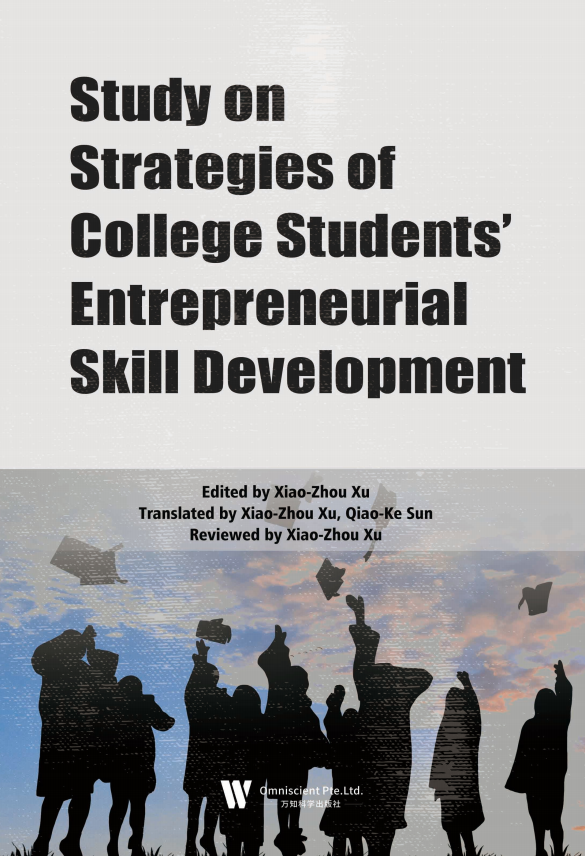
In order to lead a scientific, healthy and rapid development of education, it is imperative to grasp education trends at a macro level, conduct in-depth analyses of internal and external factors on educational development, carry out comprehensive investigations on the law of educational development, thereby formulating scientific education policies and decision makings. The degree of understanding and grasping of education strategies and decision makings arguably determines the level and speed of educational development in a country or region. The history of human civilization amply demonstrates that education is like the goose laying golden eggs. In order to build a prosperous country and boost the well-being of people, developed countries have generally regarded education as the foundation to enhance international competitiveness and attached great importance to the study on educational development strategy and decision making. With relevant education policies and regulations formulated as well as mechanisms of operation guarantee improved, these countries have guided social development with the concept of Education First, and vigorously promoted the reform and development of education at all levels and in all kinds of fields. Throughout the development history of developed countries after World War II, it is not difficult to find that education and talents serve as the fundamental guarantee for sustainable development. In order to promote educational reform and development, these countries have conducted in-depth research on education trends and strategies, formulated a series of education laws and policies, and placed education as the priority development. From 1957 to 1958, the members of the U.S. Congress submitted more than 1,500 bills related to education issues, with dozens of laws pertinent to education passed in a short period of two years. The National Defense Education Act (NDEA) has regarded education as the key factor to the survival of the nation and promoted American higher education towards its golden age. In 1983, the U.S. government launched the report, A Nation at Risk: The Imperative for Educational Reform, addressed to American citizens on the importance of educational reform and innovation. In 1991, President Bush issued America 2000: An Education Strategy, in which the six national education goals were specified. The next year after taking office, President Clinton requested the Congress to pass the Goals 2000: Education America Act with national educational goals more elaborated. In 2001, the Junior Bush Administration approved the educational reform, the No Child Left Behind Act (NCLB), under which all public schools were required to let all students score at the “proficient” level in reading and math within the next twelve years. In addition, those schools failing to meet targets within the specified time were subject to the corresponding rectification measures. The American Competitiveness Initiative launched in 2006 reflects the great importance that the U.S. government has attached to science and technology, innovation and education in the new era, and its proactive attempt to improve the national knowledge competitiveness and the strategic position in international competition by the use of knowledge and educational resources. In the same year, the U.S. Department of Education stressed in its report, Strengthening Education: Meeting the Challenge of a Change World, that President Bush has put innovation and education in the first place. From a series of education policies launched in the United States, we can easily highlight the sustained attention and support dedicated by the government to education from the height of national development strategy. Many European countries have the tradition of valuing education. Their prospective and strategic research on education issues has become an important guarantee for the sustainable development of both their society and their education. At the end of the 20th century, Tony Blair, the Prime Minister of U.K., put forward that education was an important part of social security and should be the primary responsibility of the government. In 1998, the British government issued the white paper, Our Competitive Future: Building a Knowledge-driven Economy, pointing out that knowledge, skills and creativity were what U.K. needed the most to gain the competitive edge in the world market. In 1998, Germany also clearly indicated in its report, Global Competitiveness: Prospects for Education, Science and Economy, that the efficient system of education, science and research served as a favorable prerequisite for the whole nation, which must be secured and further expanded in order to take the lead in global competition in the coming future. After the disintegration of the Soviet Union, the Government of Russian Federation has worked out a series of educational development plans around the strategic issues concerning the development of Russian education. For example, the Russian Federation Education Development Plan in 2000, the Conception of the Modernization of Russian Education by 2010 proposed in 2001, the National Education Development Plan in 2005, etc. Those prospective education strategies and decision makings have important guiding effects on the educational reform and development in these countries. In the 21st century, the European Union has formulated and implemented a series of education strategies to promote the overall development and quality of education in the European region. For example, the Lisbon Strategy formulated in 2000 set specifically increased economic growth and reduced unemployment as priority targets, with the plan to raise EU’s economic growth rate to 3% and the employment rate to 70% by the target year 2010. In 2010, the Europe 2020 Strategy proposed several strategic tasks and measures, including smart, sustainable and inclusive growth. In European Cooperation in Education and Training (ET2020), a strategic framework was provided with four strategic objectives set out to advance lifelong learning, improve the quality and efficiency of education, promote equity and social cohesion, and encourage creativity, innovation and entrepreneurship at all levels of education and training. With the advent of the big data era and the new changes of world economic and social landscape, the contest of comprehensive national strength based on education as well as the international competition centered on science and technology have become increasingly fierce. Many developed countries have been actively adjusting their education policies according to their respective needs for development strategies, striving to enhance their core competitiveness through the basic role of education and the commitment to nurturing talents, for the purpose of promoting sustainable economic development and national prosperity. The current international competition has been filled with increasingly fierce contests of comprehensive national strength, national knowledge competitiveness and competition for talent resources. Whoever grasps the education of the 21st century will grasp the initiative of international competition in the coming future. Since the reform and opening-up, remarkable achievements have been made in education in China, laying a great educational foundation and providing ample human resources for economic and social development. Yet, in the face of new opportunities and challenges, it is a must to grasp more accurately the principal contradictions and basic laws of educational development. Admittedly, there exist some deep-seated problems in Chinese educational reform and development, which requires us to focus our research on the prospective, overall, comprehensive and strategic issues concerning the country’s long-term development, put forward the grand strategy to promote educational development, and explore the policy measures to address the major problems of education in China. In particular, in the context of globalization, we need to base ourselves on China’s reality and aim at the major needs of the future development pertinent to the country and the nation, so as to promote the scientific and people-oriented development modes of education, and to advance the coordinated development of society and education. Specifically, we should grasp the key issues in educational development, including education equity, education quality improvement, innovation and entrepreneurship education, talent cultivation and selection mechanism, and other strategic and policy issues, thus correspondingly putting forward effective countermeasures and purposefully providing consulting service beneficial for the government to optimize education decision makings. At the same time, we must realize that the study on education strategy is multi-leveled, multi-dimensional and multi-perspective. We should pay attention to analyzing and solving the comprehensive, long-term and complicated problems of educational development in different regions, levels as well as types, in order to promote the coordinated development of corresponding educational fields. Our times call for educational theory scholars to make more contributions to educational reform and development, which indicates that the study on education strategy and decision making should become a hot issue in the present field of educational theory. Many scholars have carried out effective research on education strategy from different perspectives, and a bulk of research findings have played an important guiding and referential role in education decision making and practice. In the course of extensive research on education strategy, we are delighted to see that international education organizations, academic institutions at home and abroad and scholars have developed various forms of cooperation. For instance, UNESCO has organized a series of strategic studies and published research reports in line with international educational reforms and development trends. Among them, the concepts and strategies for development proposed in Learning To be and Learning: The Treasure Within have become an important reference for the development of education in all countries. The EU has organized its member states to set up prospective strategic plans in the areas of life-long learning, vocational education and entrepreneurship education. Central China Normal University, Zhejiang University, National Center for Education Development Research, National Institute of Education Sciences and Shanghai Academy of Educational Sciences have jointly established the National Education Policy-making Collaborative Innovation Center to facilitate collaborative studies on education strategy and decision making. The Jiangsu Basic Education Talent Cultivation Collaborative Innovation Center have also been jointly set up by Nanjing Normal University, Zhejiang University, and Nanjing University to advance cooperative research on regional strategic issues, such as the development of basic education and talent cultivation. This kind of cooperative research is a great help to tackle the issues concerning educational development strategies both at home and abroad, whether in terms of expanding research vision and content, or innovating methodology. With the care and support of the academic community, this series attempts to trace the important trends of educational reform and development at home and abroad through analyzing a number of strategic issues in educational development, and to probe into the hot issues of educational reform and development from the macro and micro perspectives, thereby serving as a modest spur to arouse wider attention and insights to the issues regarding education strategy and decision making. Any comment or criticism is highly welcomed.

Xiaozhou Xu is President of Communication University of Zhejiang, and Cheung Kong Scholars Chair Professor of MOE in China, Qiushi Chair Professor of Zhejiang University. He serves as UNESCO Chair holder in Entrepreneurship Education and President of UNESCO Entrepreneurship Education Network National Chapter of China. He was Dean of Academy of Humanities and Social Sciences, and College of Education at Zhejiang University. He published more than one hundred articles in key academic journals and undertook international and national research projects in the area of Comparative Education, Higher education, and Entrepreneurship Education. He published over twenties monographs include Strategies of College Students' Entrepreneurial Skill Development, Building the Entrepreneurship Education System in University, Idea and Reality in Higher Education, Autonomy and Restriction: Comparative Studies on Autonomic Policies of Universities, Excellence and Efficiency: Prior Development Strategies of Universities, Modern Korean Higher Education, Perspectives on Higher Education, etc. He edited a range of influential series which cover Entrepreneurship Education Research Series, Education in China Series, and Changes in Higher Education Policy Series, etc. He received honors and awards from government in China, UNESCO, foreign governments and universities. He conducted a series of consultancies commissioned by UNESCO, governments and foundation in China.

Qiaoke Sun attained her master degree in Linguistics from University College London (UCL), UK, in 2017. At present, she is a professional translator and PhD Candidate in Translation Studies at Xi’an International Studies University (XISU) in China. She has conducted academic research on comparative linguistics, translation and mass media, and translational communication studies, with fruitful articles published in International Journal of Humanities Studies, Australian Chinese Magazine, Journal of Social Science and Humanities, and other international academic periodicals. She served as the mentor for National Training Program of Innovation and Entrepreneurship for Undergraduates in China and won Grand Prize of FLTRP Star Teacher Contest in 2019. She has also been working extensively in translation education and has published the monograph Study on Translation Theory and Practice Between English and Chinese and the translated work The Contemporary Rural Literature of Shaanxi: A Modernity View from Chinese to English.